
The clouds had gathered over Oradour- sur-Glane on the morning of 10 June 1944, and rain threatened. At la Grange de Boeil, a hamlet nearby, Denise Bardet rose in the farmhouse she shared with her younger brother Camille and their mother Louise, a widow. It was a Saturday, and
Denise’s 24th birthday. She would be spending it teaching at Oradour’s girls’ school but planned to pedal the short journey home for a brief celebratory lunch with her mother. In the centre of the village, another resident named Odette Bouillière was sorting through what had been brought into the local post office. Odette lived in the upstairs flat overlooking Oradour’s own small tram station. Her mother was staying with her for the weekend, as was her 12-year-old nephew, Robert.
By mid-morning, the early summer warmth had burnt away the rainclouds. Weekend visitors from the nearby city of Limoges had arrived by tram, and as was the norm, everybody settled down for the customary long lunch. Minds turned to what the afternoon might hold.
The people at their tables in the lower part of the village, near the river, were the first to hear a low rumble coming from the direction of Limoges and St-Victurnien. Villagers went into the street to watch as a procession of German vehicles carrying around a hundred men crossed the bridge spanning the river Glane. As they passed, the soldiers surveyed the shops and houses along Oradour’s main street. Shutters closed while shopkeepers and curious onlookers gazed on in a mix of confusion, fear and curiosity at the strange convoy which wound its way uphill, leaving the lower village with its market hall and church behind it. Robert Hébras, who worked in Limoges and was used to seeing Germans every day, reassured his friends that this would be no more than an identity check. Many others, however, had not seen a German soldier since the beginning of the occupation.
This story is from the {{IssueName}} edition of {{MagazineName}}.
Start your 7-day Magzter GOLD free trial to access thousands of curated premium stories, and 9,000+ magazines and newspapers.
Already a subscriber ? Sign In
This story is from the {{IssueName}} edition of {{MagazineName}}.
Start your 7-day Magzter GOLD free trial to access thousands of curated premium stories, and 9,000+ magazines and newspapers.
Already a subscriber? Sign In
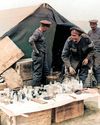
The Victorians' cocaine habit
In the 19th century, a magic new drug took the medical community by storm, riding a wave of scientific endeavour.

Tower of light and dark
The gold-tipped monument that towers above Bath is an architectural jewel and a visceral reminder of the evils of slavery. PAUL BLOOMFIELD visits the newly restored haven built by the wealthy outcast William Beckford
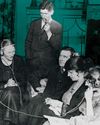
How Britain found its frequency
When radios first appeared in British homes in the early 20th century, one thing soon became clear: domestic life would never be the same again. Beaty Rubens tracks Britons' reaction to this extraordinary new technology via seven cartoons
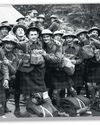
There are only a handful of survivors left who can say what happened
I WAS INTERVIEWING AN ALMOST 98-YEAR-OLD man about his memories of the Second World War this week.
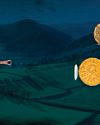
THE KING LOST KINGDOM
Battered by the Vikings, outshone by King Alfred, Mercia has long been painted as the also-ran of the Anglo-Saxon world. Yet, writes Max Adams, this mighty Midlands kingdom was at the very heart of the emergence of England

Donald Trump has retaken the US presidency, repeating his vow to 'Make America Great Again'. But he's not the first to wield such a slogan. Back in the 1980s, Ronald Reagan stood for election with the same promise.Did he deliver?
Donald Trump's recurring battle cry \"Make America Great Again!\"- taps into a powerful sense among many Americans that life was better in the old days.

"In times of political volatility, it's more vital than ever that we tell women's stories"
What impact has recent instability around the world had on the study of women’s history? Does our desire for strong female role models risk erasing complexity? And whose lives are still overlooked? Ahead of Women’s History Month, ELLIE CAWTHORNE spoke to three historians about the state of the discipline
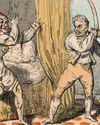
Five shocking tales from Britain's royal palaces
Royal residences have been a hotbed of drama, violence and intrigue down the centuries, as Kate Williams reveals

Why, the villagers wondered, were they completely green?
The story of the otherworldly children of Woolpit has long been treated as folklore - but, as John Clark explains, the tale may not be as fanciful as it seems

We are witnessing the biggest gathering of people in world history
I'M SURE, LIKE ME, READERS HAVE BEEN BOTH gripped and saddened this last month by the pictures of India's Kumbh Mela, the biggest pilgrimage in the world.